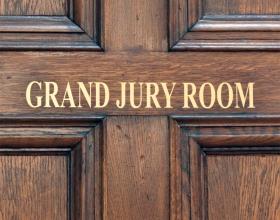 The grand jury that heard evidence in the Michael Brown shooting incident in Ferguson, MO recently returned “no true bill” after months of testimony and two days of deliberations. Pundits the world over immediately began delving into evidence – made available by the prosecutor in charge of the case – to see what the jury had considered when determining whether to indict the police officer who had shot the unarmed teen.
The grand jury that heard evidence in the Michael Brown shooting incident in Ferguson, MO recently returned “no true bill” after months of testimony and two days of deliberations. Pundits the world over immediately began delving into evidence – made available by the prosecutor in charge of the case – to see what the jury had considered when determining whether to indict the police officer who had shot the unarmed teen.
Other pundits struck up debates over the grand jury process itself, sometimes making statements that they would later correct. Clearly, there was more to the process than initially met the eye.
There are federal and state grand juries. The two systems are similar. Here’s an overview of Florida’s system.
The traditional purpose of a grand jury was to serve as a barrier between unjust prosecution on the part of the state and of the individual. The grand jury’s main role is to figure out whether there is enough evidence to support indicting a person who has been accused of a crime. In order to do that, the grand jury is also an investigative body that has the power to subpoena witnesses and evidence.
In Florida, grand juries are required only when a person is being tried for a capital offense (one where the death penalty is a possibility). Other than that, the state attorney can file charges on his or her own. Grand juries are also often used in cases where public officials are accused of wrongdoing.
A Florida grand jury must have anywhere from 15 to 21 persons. The jurors are appointed for a term that typically runs five to six months; they serve only when needed. It takes the votes of 12 grand jurors to indict an accused person. The jury can issue a report that records its findings, even if no indictment is forthcoming. In Florida, grand juries can also investigate incidents of official misconduct as well as any matter that generally concerns the public welfare, even if no crime is suspected of having occurred.
As was often repeated over the airwaves during coverage of the Michael Brown grand jury proceedings, grand juries do not need to find proof beyond a reasonable doubt in order to indict. The standard is “probable cause” that a crime has been committed and that the accused did, in fact, commit that crime.

